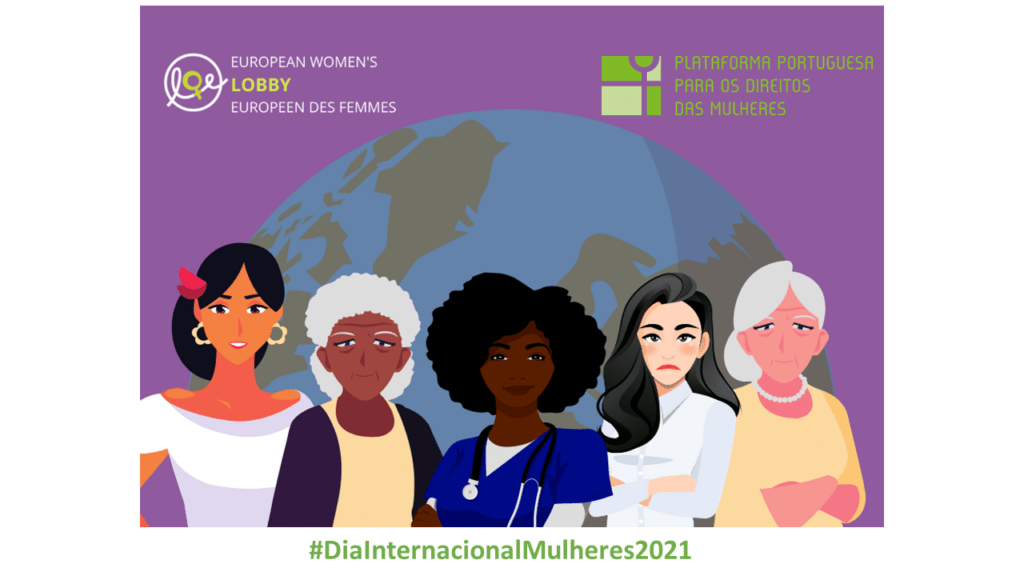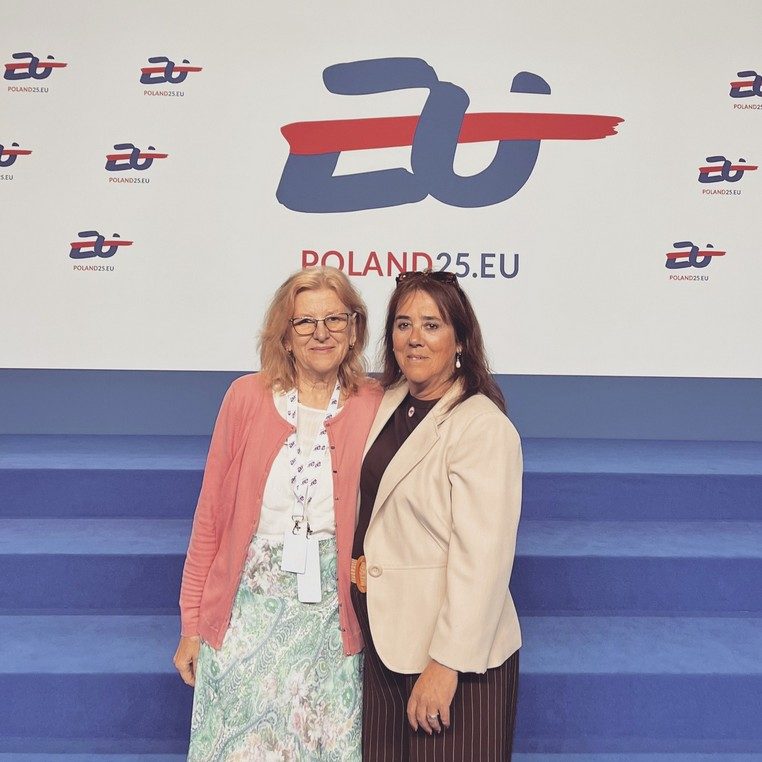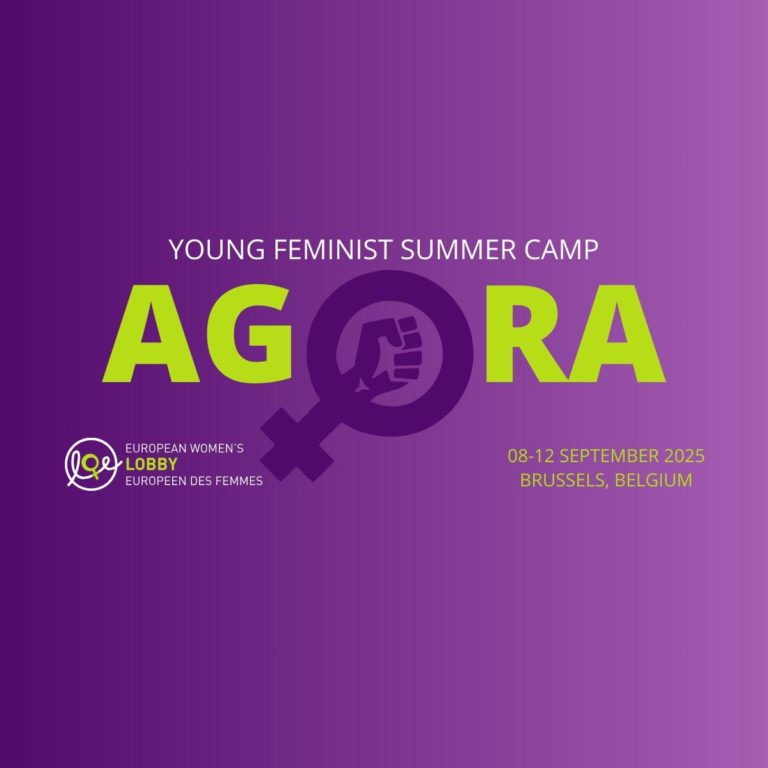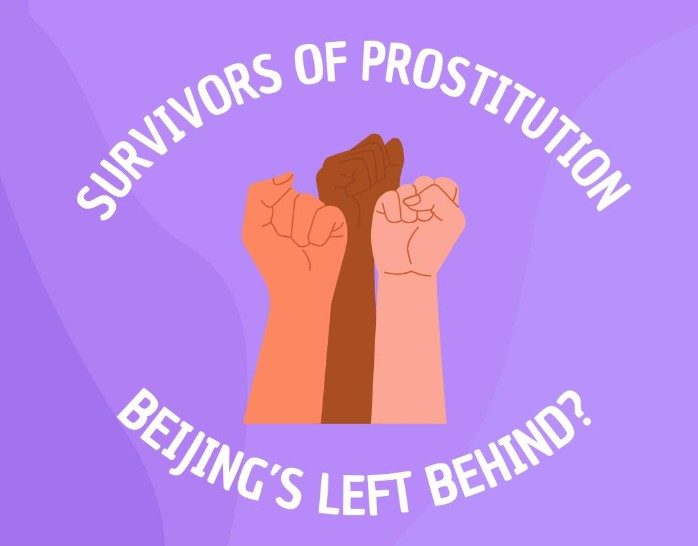The full statement is available in Portuguese here.
The past year that has been, and continues to be, filled with obstacles and challenges to our peaceful and full coexistence, marked by the struggles of each one of us, our families and our communities. These new circumstances require constant adaptation, which is expected to be needed in the near future as well.
On International Women’s Day, March 8, and every day of each year, we ask ourselves what are our concerns?
• Male violence against women and girls and the prevalence of sexism: All forms of violence against women are related and form a continuum, translating into many and diverse ways, from obvious violations of women’s rights to more subtle or distorted forms of control over their lives, their bodies and their sexuality, including online violence and sexual exploitation in prostitution and pornography.
• Macroeconomic framework, with characteristics of an almost perfect patriarchal model based on a unsustainable growth based on the exploitation of people, mainly women, and the environment, whose resources are finite. The way we collect taxes and measure growth and productivity (i.e. through GDP) completely ignores the invaluable contributions of labor invisible and unpaid women. This work is usually performed in the context of roles of stereotyped and deeply entrenched, where men provide for the family and women are caregivers, with visible consequences on the levels of lack of economic independence and poverty, inequality of wages, income and pensions, among others.
• Parity in political and economic decision-making and the continuing gap in the implementation of the agenda for policies regarding women’s rights.
• The progressive disappearance of women as subjects with their own interests and needs in politics, media, academics, etc., with evident patterns in the financing of policies for equality between women and men and for women’s associations and the services they manage.
• Sexism growing from misogyny that remains present and (in) visible in the Portuguese society, not generating the indignation that other violations of human rights generate in Portuguese society.
• The ignoring of women’s voices by progressive political parties and the lack of due recognition of women’s associations as experts and key stakeholders in shaping public policies. In 2021, we see: a reduction in specific spaces for consultation with women’s civil organizations; an occupation of women’s spaces by other sectors of interest; a reduction in the specific funding for women’s associations; and a little validation of knowledge produced by women’s associations.
On this International Women’s Day, when a necessary social and economic transformation is expected in a post-COVID moment, what do we want?
• Adequate and responsible funding for equality between women and men
Portugal will receive millions of euros under the Recovery and Resilience Plan (RRP) and the NextGenerationEU. It is important to identify:
- a) Of the total value of the RRP, what is the value destined for measures to face the inequalities that affect in particularly women as a result of the pandemic?
- b) What is the value to support the resilience of women’s associations, according to Law 107/2015, of 25 August?
- c) What is the mechanism that will be implemented in the governance model that will allow to identify how the rest of the RRP funds will support achieving equality between women and men?
It is crucial to allocate significant funds to funding for equality between women and men, namely through bold public policies and the reinforcement of the regular and systematic functioning of the women’s associations and support services for victims of all forms of male violence.
• Transforming public policies aimed at eliminating inequalities and discrimination between women and men
Policies that fully take into account the contribution of women to the economy and the development of societies; that seek the well-being of women and men, girls and boys, to all levels; focused on care, and investing in public services; that value unpaid work, the provision of accountability and transparency; that present a holistic approach that links economics to well-being, considering the activities of all people contribute in fact to the common good; and conceive the cooperation as central to the functioning of societies.
It must be considered that discrimination based on sex is not identical to other forms of discrimination, given the structural and transversal character of discrimination against women and the specific forms it can take.
• Participation of women and their representative organizations in decision-making
The quality of democracy and governance is measured by the ability to discuss and establish partnerships between the legislative and executive branches and civil society organizations. Women’s associations represent more than half of the population. In this sense, ensuring the centrality of associations that effectively promote non-discrimination against women, women’s rights and the equality between women and men (also known as women’s associations) as cooperative design partners in implementing and monitoring of public policies.
This implies the existence of proper spaces for the organizations that effectively promote women’s rights and equality between women and men (such as the Consultative Council of the IGC) and their participation in the most diverse spaces (such as the Economic and Social Council, the National RRP and Portugal 2030 Monitoring Commission, among others).
Follow the several initiatives by PpDM and its member organizations around International Women’s Day # IWD2021 – all of which can be found here and here.
#DIM2021 #IWD2021



